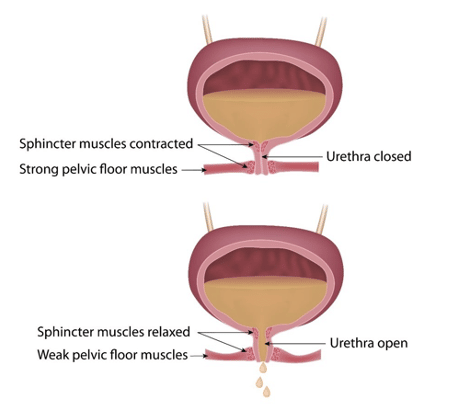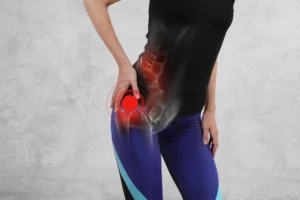Did you know that 1 in 3 netball players over the age of 18 will experience leakage of urine when playing?
Most often it will occur in netball when running, jumping or changing direction and is because the body – especially the pelvic floor muscles – are not able to cope with the downward pressure on the bladder.
We call this stress incontinence. It is more likely to occur in women who have had children, but has been reported in 15% of netballers who have not had children.
What can you do if you suffer from stress incontinence?

Stress incontinence can occur in other sports as well as with more day to day activities such as coughing, sneezing or laughing. The first line of treatment for this condition is to consult a Women’s Health physiotherapist. They will take a comprehensive history to understand what is contributing to your symptoms. Most often it is that the pelvic floor muscles are not functioning well enough – eg. not strong enough, poor endurance, poor co-ordination. Sometimes other factors might be contributing such as constipation or reduced strength and control in other muscles such as the abdominals when coughing or the calf muscles when running and jumping.
Physiotherapy treatment for stress incontinence
Treatment will include pelvic floor exercises prescribed specifically to match your problem and progressed as you improve. The research demonstrates that sticking to a programme of pelvic floor exercises supervised a physiotherapist for 2-3 months can cure or significantly improve symptoms in up to 80% of women.
At Total Physiotherapy we have four Women’s Health physiotherapists who can provide the help you need to manage stress incontinence. Call our team today on 02 9907 0321.


